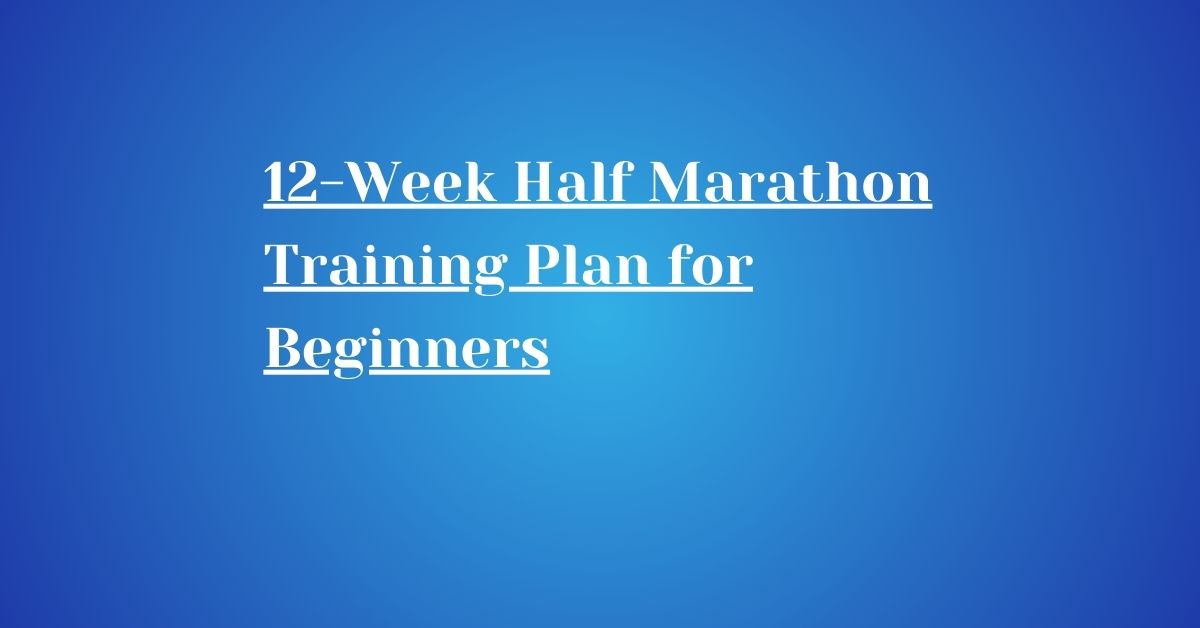This 12-week intermediate half-marathon training plan will help you improve your time at this distance, considered for intermediate runners who have already run the first time.
Over 12 weeks designed by Ilya Tyapkin, a professional and Olympian runner, which carefully crafted routine that includes a variety of runs targeting different aspects of fitness: easy runs to build a strong aerobic foundation, speed workouts, and interval training to refine your pace and efficiency, tempo runs to push your limits and sustain faster speeds over longer distances, and long runs to build the endurance.
We’ll explore how it works, the paces at which you train, and how to target a time that aligns with your goals.
The Training Plan
Thank you!
You have successfully joined our subscriber list.
How Does the Training Plan Work?
This 12-week training plan for an intermediate half-marathon will help runners become more enduring and enhance their running speed. The training covers easy runs, speed work, tempo runs, and long runs that progress into an increasingly difficult pattern weekly.
The plan begins with easy runs to establish a running routine and improve aerobic fitness. In the first few weeks, shorter intervals, such as 100-meter sprints, introduce some speed, whereas warm-ups and cool-downs prevent injury. As you progress, interval distances increase and tempo runs are added to help you sustain faster paces over longer distances.
This plan is based on long runs, from more manageable distances to 20km. These runs build the physical endurance needed to support the demands of the half-marathon distance.
Rest days and recovery runs have been scheduled for active recovery. The last two weeks of the plan are a taper: You’ll reduce your mileage and intensity so you’re rested and at peak performance on race day.
Training Structure Breakdown
Weeks 1–2: Laying a Strong Foundation
Start a running routine in the first two weeks with easy runs for 30 to 60 minutes. Low effort is emphasized when building endurance. In the second week, interval training introduces short sprints, for example, repeats of 100 meters combined with jogging recoveries and warm-ups or cool-downs to start getting your body ready for speedwork.
Weeks 3–4: Speed and Heart Rate Training
These weeks become increasingly intense, with more interval repetitions and heart rate-based running. Week 3 introduces 100m intervals, controlled in speed, while Week 4 goes into slightly longer 200m intervals at a faster effort. Heart rate-specific runs up to 150 bpm are added to teach you how to pace yourself for endurance efforts. Easy runs round out the staple for active recovery and progressive overload.
Weeks 5–6: Building Endurance and Tempo Runs
These include longer intervals and tempo runs for increased stamina and pacing ability. Week 5 introduces 500m intervals with longer jogging recoveries, while Week 6 has a longer tempo run paired with an extended easy run of up to 18km. These sessions simulate race conditions and allow your body to learn how to sustain an effort over time.
Weeks 7–8: Pushing Long Runs and Tempo Efforts
Long runs peak at 18km, preparing you to handle the half marathon distance. Tempo runs extend to 10km, focusing on a sustained, faster pace to build speed endurance. Interval training continues with 1km repeats, helping improve your ability to maintain consistent effort. These weeks are pivotal for boosting your overall fitness.
Weeks 9–10: Final Peak Before the Taper
The intensity peaks for longer intervals, tempo runs, and longer runs. This structure has you running a grueling 20km long run in Week 10 to get you close to the half marathon distance. Tempo runs are at a constant heart rate of 150-160 bpm to simulate race effort.
Weeks 11–12: Tapering and Race Day
The last two weeks are all about tapering, allowing your body to recover while maintaining fitness. The mileage and intensity are lowered; shorter easy runs and light speedwork are performed to keep the legs fresh. By Week 12, you will feel rested and ready for race day. All the training comes together in a strong and confident performance as half marathon day comes!
What Paces Should I Train At?
- Easy Runs: These should be done at a comfortable pace—about 60–70% of your maximum effort. You should be able to carry on a conversation without struggling to breathe. Easy runs help build your aerobic base and promote recovery.
- Interval Workouts: These are done at quicker speeds, such as 70–80% of one’s maximum effort for sprinting, over distances spanning from 100m to 1km, and emphasize speed with form while improving running efficiency.
- Tempo Runs: These are runs at a challenging but sustainable pace, slightly slower than your race pace or at a heart rate of 150–160 bpm. They help improve your lactate threshold, enabling you to sustain effort for longer periods.
- Long Runs: Long runs are done steadily, averaging about 60–65% of your maximal effort. The focus should be on endurance, not speed.
A heart rate monitor or a running app can help you stay within these pace ranges. Consistently training at the right paces will prepare your body for race day demands while helping to prevent overtraining.
What is a Good Target Time for This Plan?
If you follow this 12-week intermediate half-marathon training plan, a good target time may range from 1 hour 45 minutes to 2 hours 10 minutes. This, of course, depends upon your fitness at the commencement of training and how much you put the training into practice. That is approximately 5:00 to 6:10 minutes per kilometer average pace.
Here’s how the target time aligns with the plan:
- Experienced Runners: If you’ve completed a half marathon before or can run 10km in under 50 minutes, this would be you. So, you may want a quicker time, say 1:45 to 1:55. This plan will include tempo runs and speed intervals to maintain this quick pace.
- Intermediate Runners: If you’re upgrading from shorter races or working off a good fitness base, a target time of around 2:00 to 2:10 is realistic. This plan focuses on consistent and predictable progress that will physically and mentally prepare you for the half marathon.




